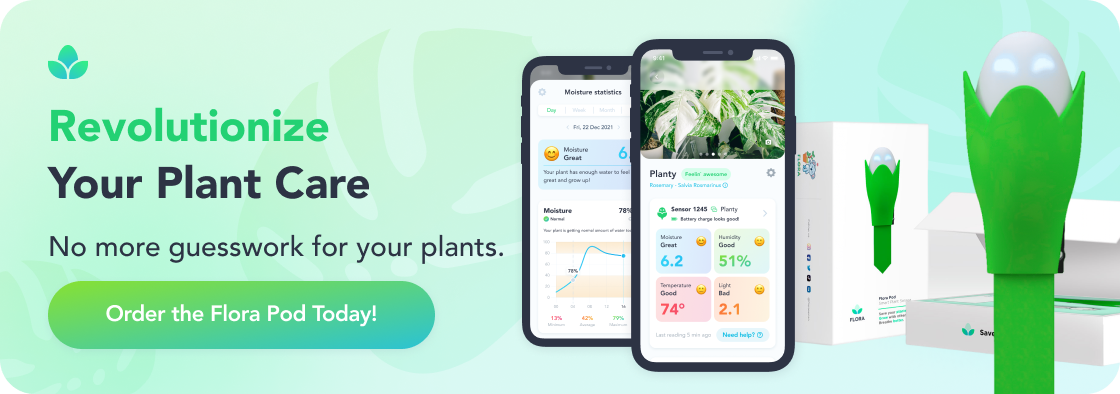Are Chinese Money Plants Toxic? Safety Tips for Pet Owners

Chinese Money Plants (Pilea peperomioides), with their unique round leaves and ease of care, have become a popular choice for indoor plant enthusiasts. For pet owners, however, the question of their safety is crucial. Let's delve into whether these plants pose any risks to our furry companions and how to keep them safe.
Toxicity of Chinese Money Plants
Humans and Pets
Chinese Money Plants (Pilea peperomioides) are generally considered safe for humans. However, it's crucial to be aware that in rare cases, ingestion may still lead to mild discomfort.
Symptoms
In humans, although uncommon, can include irritation in the mouth, mild swelling, nausea, or a tingling sensation upon ingestion.
It's especially important to keep an eye on small children around these plants. Educating children about not ingesting plant parts is a preventative measure.
In case of ingestion, rinsing the mouth and drinking water can alleviate mild symptoms. If symptoms persist, seeking medical advice is recommended.
Are Chinese Money Plants Toxic To Dogs?

The American Society for the Prevention of Cruelty to Animals (ASPCA) categorizes Chinese Money Plants as non-toxic to dogs. Nevertheless, pet owners should be cautious, especially with young or small breeds.
While not toxic, dogs may experience gastrointestinal upset if they ingest parts of the plant.
Symptoms in Dogs:
Vomiting and diarrhea
Reduced appetite
Lethargy or unusual tiredness
Excessive drooling
Disorientation or confusion
The severity of these symptoms often depends on factors like the dog's size, breed, and the amount of plant ingested. Dogs with pre-existing health conditions or those taking certain medications may have a heightened or altered response to ingesting the plant.
Preventive Measures: Keeping the plant out of reach, particularly from puppies or curious dogs, is a wise step. Training pets to avoid plants can also be beneficial.
Is Chinese Money Plant Toxic To Cats?
Similar to their effect on dogs, Chinese Money Plants are also considered non-toxic to cats by ASPCA standards.
While generally safe, ingestion can lead to mild gastrointestinal upset in cats.
Symptoms in Cats:
Vomiting or gagging
Mild stomach discomfort or pain
Changes in appetite or feeding behavior
Since cats are known for their nibbling habits, it's important to place these plants in areas where cats cannot easily access them. Cats with specific health conditions or sensitivities might show more pronounced reactions after ingesting plant material.
If a cat shows any adverse symptoms after ingestion, it’s advised to consult a veterinarian.
Safety Precautions for Pet Owners
Keeping Pets Safe
Placement of Chinese Money Plants: It's important to place these plants out of reach for both cats and dogs. This can be achieved by using high shelves, hanging planters, or rooms that pets cannot access.
Special Considerations for Dogs: For households with dogs, especially small breeds or those with existing health conditions, extra vigilance is necessary. It's better to either choose a different plant or ensure that pets are supervised when near the Chinese Money Plant.
Cats and Their Curiosity: Cats are naturally curious and may try to nibble on plants. Therefore, positioning Chinese Money Plants in areas inaccessible to cats is crucial for their safety.
Handling Plants

Use of Gloves: When pruning or otherwise handling the plant, wearing gloves can minimize the risk of skin irritation, which might inadvertently be passed to pets.
Post-Handling Hygiene: After handling the plant, wash your hands thoroughly. This practice prevents the accidental transfer of plant sap or irritants to your pets through touch.
Additional Tips
Training Your Pets: If possible, train your pets to avoid houseplants. This can be an effective long-term solution for households with multiple plants.
Regular Health Checks: Keep an eye on your pets for any signs of illness or unusual behavior, especially if they have shown interest in your plants.
Emergency Preparedness: Keep contact information for your veterinarian handy in case your pet ingests any part of a plant and shows adverse symptoms.
Choosing Pet-Safe Plants:
If you're concerned about the safety of your pets, opt for pet-friendly alternatives like spider plants, Boston ferns, or African violets, which pose no harm to cats and dogs.
While Chinese Money Plants are not classified as toxic to pets, it's always better to err on the side of caution. Understanding the potential risks and symptoms, along with implementing safety measures, can help ensure the well-being of your pets while enjoying the beauty of these popular houseplants.
Fern's Leafy Learnings
Chinese Money Plants are generally not considered highly toxic but can cause mild symptoms like mouth swelling and vomiting if ingested.
The ASPCA lists these plants as non-toxic to cats and dogs, but they may still cause mild stomach upset in pets.
Severity of symptoms in dogs varies based on factors like the amount ingested, dog's size, breed, and pre-existing health conditions.
Precautions for pet owners include keeping the plants out of reach and choosing pet-friendly alternatives for a safer home environment.
Regular hand washing after handling plants and using gloves during pruning can minimize the risk of irritants affecting pets.
Deepen Your Roots with Flora
Your plant journey doesn’t stop at purchase – it’s only just begun! With Flora, immerse yourself in a world where plants and parents connect, grow, and learn together. Our expansive range of fresh and rare plants, the state-of-the-art Flora Pod™, and an unwilting community of over a quarter-million plant enthusiasts, you’re never alone in your botanical journey.
Guiding you from seedling to flourishing canopy, Flora is your constant companion in every step toward a lush, green sanctuary at home.
Eager to foster your own indoor jungle? Discover Flora's plants and innovative care solutions now!
Flora Pod™ is featured on Shark Tank!

5 Signs Your Houseplant Needs Repotting Now
Mar 02, 2026
6 Anthurium Benefits You Didn't Know About
Mar 02, 2026

How to Prune Your Houseplants Before Spring Growth Season
Mar 02, 2026

10 Best Houseplants for Spring Repotting Success
Mar 02, 2026

Can ZZ Plants Survive in Low Light Conditions?
Mar 02, 2026

5 Critical Pre-Spring Pruning Tips for Houseplants
Mar 02, 2026

Can Succulents Survive Winter Outdoors in Your Climate Zone?
Mar 02, 2026

Which Houseplants Are Toxic to Cats and Should You Avoid Them?
Mar 02, 2026





